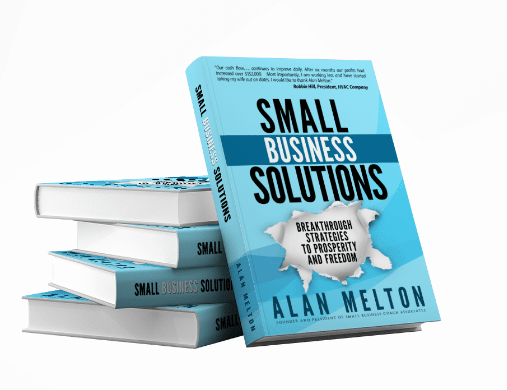VIEW BY TOPIC
- Finding Customers
- Business Systems
- Managing Employees
- Leadership
- Managing Money
Related Posts

Ready to Grow Your Business Fast?
Here’s How I Grew Five Businesses, and Eventually Sold One to a Fortune 500 Company.

What is Burnout and How Can I Avoid it?
In recent years, there’s been a significant drive to increase public awareness of mental health. This has resulted in a huge number of institutions, including workplaces, taking action to improve the overall well-being of the people they are responsible for. First developed in the 1970s, the term ‘burnout’ has been used to describe work-related mental health difficulties for a number of years. However, the medical diagnosis has really gained traction over the course of the pandemic, when many people were suffering from a heightened level of stress.
But what exactly is burnout and what can we do to prevent it? It can be hard to separate burnout from the normal stresses that come with working life, making it all the more important to cultivate a deeper understanding of this problem.
What is Burnout?

Once deemed to be simply a symptom of stress or other underlying conditions such as depression, burnout is now classed as a syndrome by the World Health Organization (WHO). It occurs as a result of sustained workplace stress that has not been dealt with effectively and can have a negative toll on a person’s mental, emotional, and physical health.
Burnout is different from ordinary workplace stress in that it occurs over a long period of time. Rather than being a proportionate response to tight deadlines, burnout causes lasting feelings of dread, hopelessness, irritability, and exhaustion. Other signs of burnout include:
- Isolating yourself from friends, family members, or colleagues and feeling unable to ask for help or accept support.
- Escapist behaviors that may include excessive daydreaming or binge-watching television. Over time, these behaviors may develop into drug or alcohol dependencies.
- Excessive tiredness that occurs even after having enough sleep.
While burnout is classed separately from depression and anxiety, it can lead to these more serious mental health problems if left untreated.
Burnout and Taxes
It’s been reported that 19% of small business owners find filing their tax return one of the most stressful times of year. So, if you’re self-employed or run a start-up, you need to keep on top of your finances to avoid stress building up around tax time. You can significantly reduce the amount of stress you experience when submitting your tax return by using accounting software each month. If you have employees to worry about as well, using a payroll end of year checklist well in advance of any deadlines can help you to feel more in control.
However, if you are suffering from burnout that’s related to a mental illness, HMRC may be able to provide support. In line with the Equality Act, HMRC can put individuals and business owners struggling with mental health in contact with a tax adviser in the Extra Support Team, or refer them to a group such as TaxAid.
To access this support, you will need evidence of your mental illness, which typically involves a note from a doctor or licensed psychologist. While HMRC won’t overlook any tax debt you might have completely, they will be more understanding and may provide you with more time to pay. It’s likely that they will suspend enforcement action for a period of time, especially if it’s proven to be harmful to your mental health, but tax will only be remitted if your mental illness will prevent you from ever returning to work.
How to Avoid Burnout
Now that we understand that burnout is more serious than temporary stress or lethargy, it’s important to put our energy into preventing it from occurring in the first place. Like many mental health conditions, avoiding burnout isn’t always possible, but there are many steps you can take to give yourself the best chance of maintaining a healthy work-life balance.
Stay Organized and Set Boundaries
Stress can accumulate for many reasons, but one of the most common is poor time management and a lack of boundaries. There are times in everyone’s life when they have to work extra hours to meet a deadline, but to avoid this becoming a regular occurrence it’s important to plan your work in advance.
However, there are times when the tasks on your to-do list simply aren’t possible to squeeze into a seven-day week. In these instances, you need to set boundaries with your clients, co-workers or superiors. Agreeing to do everything that everyone is asking of you at the expense of your own mental wellbeing will eventually lead to burnout. Be firm and clear when explaining your availability and capacity for work.
Find Purpose
Burnout can occur in any job, but it’s much less likely to occur when you’re passionate about what you do. Finding a purpose in your current role, or transitioning to a job more aligned with your values, has the power to transform your response to stress for the better.
Think carefully about the reasons why you originally chose the profession you’re in and whether there is anything better suited to your needs out there. Finding a job with purpose could involve working for a charity or non-profit, a company that gives back to the community, or even starting your own business.
Unfortunately, the reality is that not everyone can afford to change jobs or switch to a sector that’s better aligned with their interests, especially if they have a family to support. However, the good news is that it’s possible to find purpose in a hobby, side hustle, or voluntary pursuit as well. Finding a purpose outside of work can do just as much for preventing burnout as changing your job itself. This is because you will still be using your time to contribute meaningfully to the world and feel more fulfilled overall.
Manage Stress in a Healthy Way
Burnout is essentially the result of sustained, poorly-managed stress, making stress management a key part of maintaining your mental health. Managing stress looks different for everyone, but some of the key strategies you could try include:
- Regular exercise whether that’s joining a yoga class, going to the gym, or having a walk at lunchtime.
- Being more mindful and present rather than spiraling into thoughts about the future. This could be through meditation or an activity like coloring or gardening.
- Spending time with loved ones and talking about any problems you need help with.
- Maintaining a sleep schedule and before-bed routine.

Take Breaks
Sometimes, no matter how hard you try to manage your stress, you need to take a break. If you’ve had a particularly difficult month at work, you could benefit from having a week off to go on holiday or reset.
However, it’s important to build breaks into your daily routine as well. Moving away from your computer, getting some fresh air, and stretching your legs should all be a part of your working day. And, if it’s possible, try to switch off from work completely in the evenings. There should always be a portion of your day where you feel like you can let go of responsibilities and unwind, so if your job requires you to be constantly on call, you may want to reconsider the amount and the type of work you’re taking on.
Burnout and the Future of Work
Cited as one of the reasons for the recent great resignation, burnout seems to be taking a toll on the world’s workforce more than ever before. But does this mean that it’s here to stay?
Burnout always has and likely always will be an issue that thousands of workers have to contend with, but that doesn’t mean it has to become a widespread problem. With the right education and attitude, employers and employees alike can work together to promote a better sense of well-being in the office, whether in-person or virtual.
About the Author
Aislinn Carter is a freelance writer and small business owner living in Hallandale, Florida. She has extensive experience in writing across a number of different verticals, with a specialism for business management and professional development-related content.














